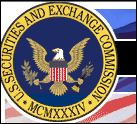Factors applicable to the making of an accounting judgment include the following:
· the preparer’s analysis of the transaction, including the substance and business purpose of the transaction;
· the material facts reasonably available at the time that the financial statements are issued;
· the preparer’s review and analysis of relevant literature, including the relevant underlying principles;
· the preparer’s analysis of alternative views or estimates, including pros and cons for reasonable alternatives;
· the preparer’s rationale for the choice selected, including reasons for the alternative or estimate selected and linkage of the rationale to investors’ information needs and the judgments of competent external parties;
· linkage of the alternative or estimate selected to the substance and business purpose of the transaction or issue being evaluated;
· the level of input from people with an appropriate level of professional expertise;
· the preparer’s consideration of known diversity in practice regarding the alternatives or estimate;
· the preparer’s consistency of application of alternatives or estimates to similar transactions;
· the appropriateness and reliability of the assumptions and data used;
· the adequacy of the amount of time and effort spent to consider the judgment.
When considering these factors, it would be expected that the amount of documentation, disclosure, input from professional experts, and level of effort in making a judgment would vary based on the complexity, nature (routine versus non-routine), and materiality of a transaction or issue requiring judgment. Material issues or transactions should be disclosed appropriately. Existing disclosure requirements should be sufficient to generate transparent disclosure that enables an investor to understand the transaction and assumptions that were critical to the judgment. In addition, when evaluating the reasonableness of a judgment, regulators should take into account the disclosure relevant to the judgment.
It is imperative that the alternatives considered and the conclusions reached should be documented contemporaneously. This will ensure that the evaluation of the judgment is based on the same facts that were reasonably available at the time the judgment was made. The lack of contemporaneous documentation may not mean that a judgment was incorrect, but would complicate an explanation of the nature and propriety of a judgment made at the time of the release of the financial statements.




